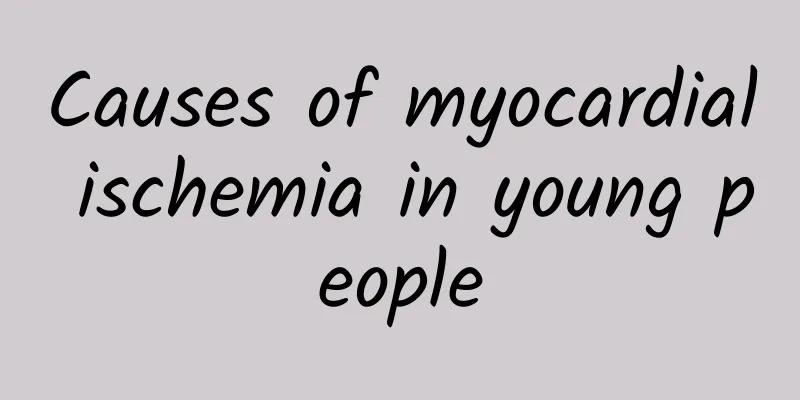What's wrong with the child being listless?

|
If a child is simply listless, it is very likely due to lack of sleep. If the listlessness is accompanied by abnormal emotions, loss of weight after not wanting to eat or eating a lot, restless sleep and prone to sweating, etc., then it means that there is something wrong with the baby's body and he is about to get sick, so you must find the cause in time and try to prevent the baby from becoming ill. 1. Abnormal emotions Emotional changes can indicate whether a baby might be sick. A healthy baby will be energetic, have bright eyes, not cry or make a fuss, and can easily adapt to the environment after his needs are met. However, a sick child often has abnormal emotions. If the baby is irritable, has a red face and dry lips, it is often a sign of fever; a dull look, staring eyes and clenched fists are often signs of convulsions; a weak cry or no cry often indicates a serious condition. In addition to the obvious signs above, your baby may also appear listless, irritable, or have temper tantrums. Parents should observe carefully, discover problems in time, and seek medical treatment in time. Parents must not scold their baby for his emotional reaction due to illness. On the one hand, they should understand him, and on the other hand, they should love him. Because illness and emotions can affect each other, a baby's illness will cause his mood to change, and negative emotions will aggravate the condition. 2. Changes in appetite Healthy children can eat on time and their food intake is relatively stable. If you find that your baby has a decreased appetite, a sudden increase in appetite, or refuses to eat, it is often a sign that the baby is ill. For example: peptic ulcer, chronic enteritis, tuberculosis, poor liver function, parasitic diseases, ascariasis, hookworm disease, etc. may cause loss of appetite; zinc deficiency, vitamin A or D poisoning may also cause loss of appetite. If the baby usually feeds and eats well but now suddenly refuses to feed or is unable to suck, or refuses to eat or eats less, there may be an infection. The change in appetite of sick babies is not only reflected in poor appetite. Some diseases will increase appetite. The most typical example is childhood diabetes. They drink and eat a lot and never feel full. Even if they eat a lot, their weight will decrease instead of increase. If a child has poor appetite due to bad eating habits, parents should never use coaxing, beating or scolding to force the child to eat. What are the signs that your baby is sick? What should you do if your baby is sick? How to prevent your baby from getting sick? 3. Poor sleep Normal babies usually fall asleep quickly, sleep soundly, have a natural sleeping posture, breathe evenly, and have a relaxed expression. Sick babies usually have poor sleep at night, such as: less sleep, waking up easily, and restless sleep. Various pains, such as toothache, headache and neuralgia, can cause your baby to have a bad sleep at night. Itching, gastrointestinal diseases or respiratory diseases can also wake your baby up from sleep at night. Being restless before going to bed, kicking off the quilt during sleep, having a red face after waking up, and having rapid breathing may be caused by fever; if you like to scratch your anus with your hands before going to bed, you may have pinworm disease; babies with rickets will often cry in their sleep, sweat profusely after waking up, and are easily irritated; and constantly chewing and grinding teeth before and after going to bed may be caused by being too excited before going to bed or having a roundworm infection. 4. Excessive sweating Physiological hyperhidrosis in children is common in hot weather, high room temperature, too thick clothing or quilts, etc. Some children also sweat all over their body or on their forehead when eating or breastfeeding. These are all normal phenomena. Children have a high metabolism, are active and lively, and sweat more than adults. Pathological sweating often occurs when children are quiet or sleeping. For example, they may sweat profusely or continuously when lying flat or sleeping. In addition to excessive sweating, pathological hyperhidrosis is often accompanied by other disease symptoms, such as nutritional diseases and infectious diseases. Weak children who are overactive during the day often sweat a lot after falling asleep at night, but the sweat gradually subsides after deep sleep. This type of sweating is more common in children with rickets and malnutrition. Excessive sweating on an empty stomach should alert people to hypoglycemia. Expert tip: Bathe your child frequently and change his or her underwear and bedding to ensure the cleanliness of the skin, especially the skin folds such as the groin and armpits. Mothers should feed their babies more water while breastfeeding, and older children should pay attention to drinking more water and eating more vegetables and fruits. The room temperature should be appropriate to avoid being too cold or too hot. 5. Abnormal defecation Abnormal bowel movements are also a sign that your baby is sick. Both constipation and diarrhea indicate that your baby is unwell. 95% of constipation is due to functional reasons, not abnormalities of the body itself. Usually, this problem can be solved by giving your baby more vegetables or other high-fiber foods. At the same time, children should be encouraged to move more, strengthen the muscle strength involved in defecation, and develop the habit of regular bowel movements every day. However, if a newborn baby is constipated, it is best to see a pediatrician to rule out any abnormalities in the body itself. The cause of pathological diarrhea can be analyzed from the nature of the stool. For example, the stool of small intestine inflammation is often watery or egg drop soup-like, while the stool of viral enteritis is mostly white rice soup-like or egg yolk-colored watery. Expert tip: Babies with diarrhea should control their food intake so that their intestines can get proper rest. Breastfed children should eat less greasy food to avoid indigestion and aggravate diarrhea. At the same time, clean the baby's buttocks with warm water after each defecation, dry it with a towel, and apply some talcum powder. |
<<: What to do if you have mental problems?
>>: Manifestations of mental excitement
Recommend
How can lemon whiten your skin? Five ways to make you whiter
Lemon is a kind of fruit that people often eat. I...
Scraping technique, Chinese medicine teaches you scraping techniques for different parts of the body
Gua Sha is a commonly used method of health care ...
What medicine should I take for autonomic nervous system disorder? Different medicines are used at different stages
The disease of autonomic nervous system disorder ...
What causes eye twitching?
People need to understand that eye twitching is a...
Fasting for a few hours before a cesarean section
We all know that before the patient undergoes sur...
The most advanced contraceptive method
Because sex is a big thing for human beings, alth...
First aid measures for epilepsy
Everyone should know about epilepsy, because ther...
Umbilical cord around the neck for 3 weeks
Women should always pay attention to their physic...
When will the fat particles on the newborn's face fall off?
Parents don't need to worry if fat particles ...
Pregnant woman with pain in buttocks and waist
It is very inconvenient for a pregnant woman with...
Is it normal to have a mole on the scalp?
Moles are divided into congenital and acquired me...
The efficacy and function of liver-nourishing grass
The main effect of nourishing liver grass is to r...
What are the Chinese patent medicines for the treatment of cholecystitis?
Cholecystitis is a common disease in life, which ...
Effects and functions of traditional Chinese medicine Lycopodiella
Sea Sand is a common Chinese herbal medicine. It ...
What are the uses of calcite
Calcite is a calcium carbonate ore with many uses...









